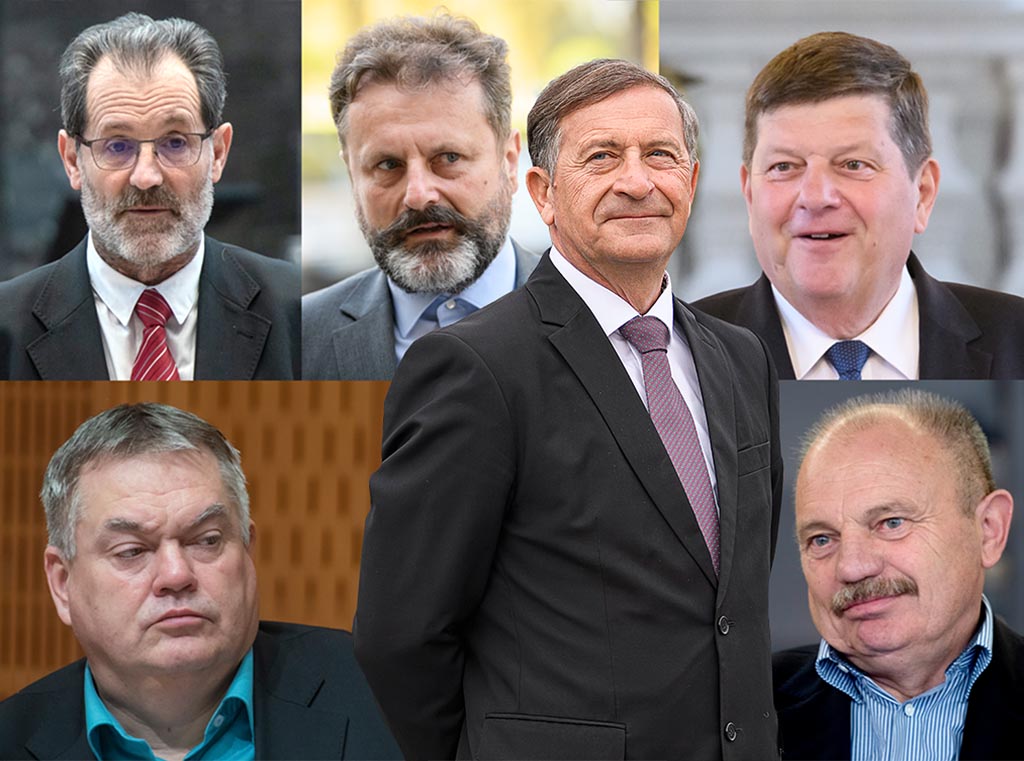by Peter Truden
Karl Erjavec, who is running for president of the DeSUS party and who is already being nominated by some as the new prime minister, as the leader of the KUL “coalition” Jože P. Damijan is believed to have no chance, recently said that DeSUS’ (his?) ideology is not liberal capitalism. So what is it? Illiberal capitalism?
There is complete confusion at the left-wing at the moment. Jože P. Damijan, who went from a classic liberal to a young socialist, is still considered in public to be the man who will overthrow the government of Janez Janša. The goal is to preserve the privileges of the transitional left (the state budget’s purpose is to fill their pockets), which the center-right government (ensuring that funds are evenly distributed throughout Slovenia) significantly diminished, which even a mayor of Ilirska Bistrica from the SD party, Emil Rojc, admitted.
As it is becoming increasingly clear, that Jože P. Damijan does not have a real chance to become Prime Minister, the mainstream media launched a new story (a new possibility) that Karl Erjavec could become the new Prime Minister (although DeSUS deputies say that this possibility is almost non-existent; via Franc Jurša). Erjavec commented on the ideology of the DeSUS party: “Our ideology is anti-fascism, the welfare state, public healthcare, public education, and our ideology is not fascism, liberal capitalism, private healthcare, and private education. That is why, as a candidate for the party president, I strongly oppose all those who claim otherwise.” Erjavec and his party oppose liberal capitalism, thus they must be for illiberal capitalism. That is to say, the ideology that the European Democratic Party (EDP), which operates in the European Parliament within the Alde political group (and which DeSUS is a member of), accuses Hungarian Prime Minister Viktor Orban and his Fidesz party of. Does this mean DeSUS will withdraw its membership from Alde, whose ideology is liberal democracy, and will it openly support the central-plan ideology?
But let’s clarify some concepts. Liberal capitalism or liberal democracy is supposed to be an ideology of freedom and moderation – it is politically placed in the middle of the political spectrum. In economic terms (simply put) it means: recognition of possession and free disposal of private property, a free market economy shaped by supply and demand and freedom, globalism and the least possible state interference in economic relations between individuals and companies. In terms of values, liberal capitalism is an ideology of secularism, it emphasizes the importance of the LGBT agenda, it advocates the free movement of migrants (without restrictions) and the mixing of cultures. Its opposite is illiberal capitalism, which is clearly the ideology of the DeSUS party.
One of the major critics of liberal capitalism (or liberal democracy) is Hungarian Prime Minister Viktor Orban, who leads the conservative Fidesz party. He is accused of pursuing a policy of illiberal capitalism. As DeSUS, according to Erjavec, also opposes fascism (which is actually a version of socialism), there is only one thing possible: DeSUS will go in the direction of the policy pursued in Hungary by Viktor Orban, i.e. in the direction of (national or patriotic) conservatism.
A characteristic of illiberal capitalism (the term should not be confused with classical capitalism) is a kind of social and national Darwinism, which is based on capitalism. Hungary, for example, is very open to foreign investment, it protects private property and has a flat-rate income tax, on the other hand it favours Hungarian families and Hungarian culture, and has large tax breaks for families with several children.
So what is the ideology of the DeSUS party when Erjavec says he opposes liberal capitalism? European liberals in Alde see illiberal capitalism as an authoritarian system. Although this system accepts the free market or capitalism, it retains the great role of the state in the economy. According to them, it is a combination of nationalism and capitalism, where the rule of law is “adapted” to the needs of the ruling class. According to European liberals, illiberal democracies have all democratic institutions (including free elections), but they are “closed” in terms of values: they do not accept the LGBT agenda, oppose abortion (it is forbidden in some places), (illegal) migration, Islam in Europe, etc.

